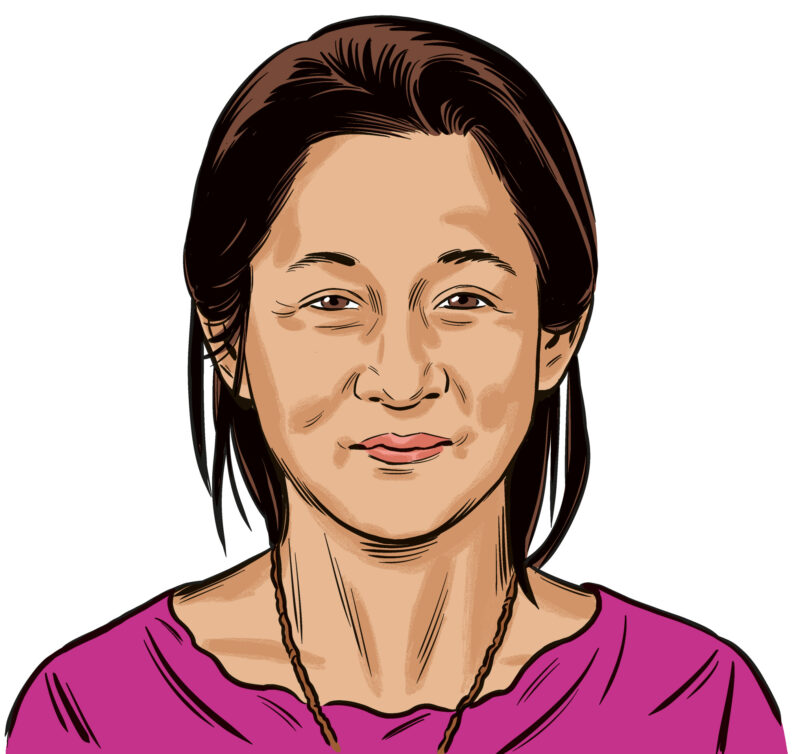I first encountered Julie Otsuka—the author and her work—in northwest Pennsylvania in 2009. I had a one-year visiting assistant professorship in fiction at Allegheny College, and Otsuka came through to give a reading. I’d not yet read her debut novel, When the Emperor Was Divine (2002), about a Japanese American family’s forced relocation to a US internment camp after the bombing of Pearl Harbor. Nor had she yet published her follow-up, The Buddha in the Attic (2011), about Japanese mail-order brides in the early 1900s, though that night she read aloud an excerpt.
Her sentences left me spellbound. Otsuka has a thrillingly unique sensibility, one marked by the enumeration of precise, intimate details. I’d never heard anyone parse the first-person-plural point of view as she does, spinning it out into individual lives and then gracefully gathering them back up. Describing the picture brides’ international voyage to the States in Buddha, she writes, “Some of us had eaten nothing but rice gruel as young girls and had slightly bowed legs, and some of us were only fourteen years old and were still young girls ourselves. Some of us came from the city, and wore stylish city clothes, but many more of us came from the country and on the boat we wore the same old kimonos we’d been wearing for years.” By illuminating a range of traits and preferences and experiences, Otsuka not only humanizes the women but ensures this group is not seen as a monolith—an easy assumption about any community.
You have reached your article limit
Sign up for a digital subscription and continue reading all new issues, plus our entire archives, for just $1.50/month.
Already a subscriber? Sign in





